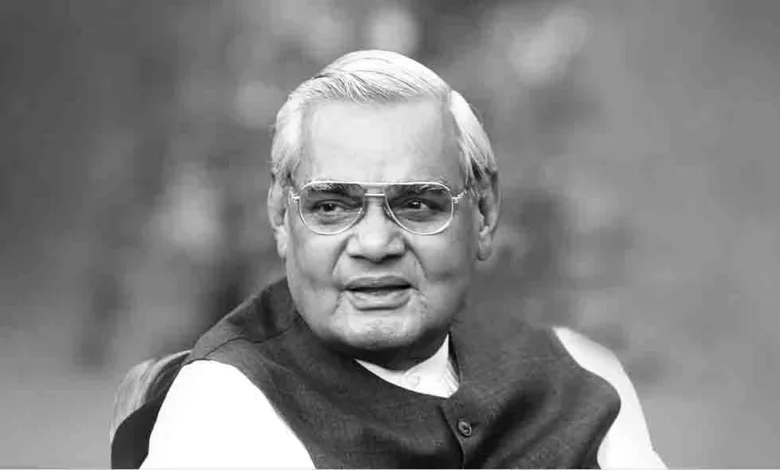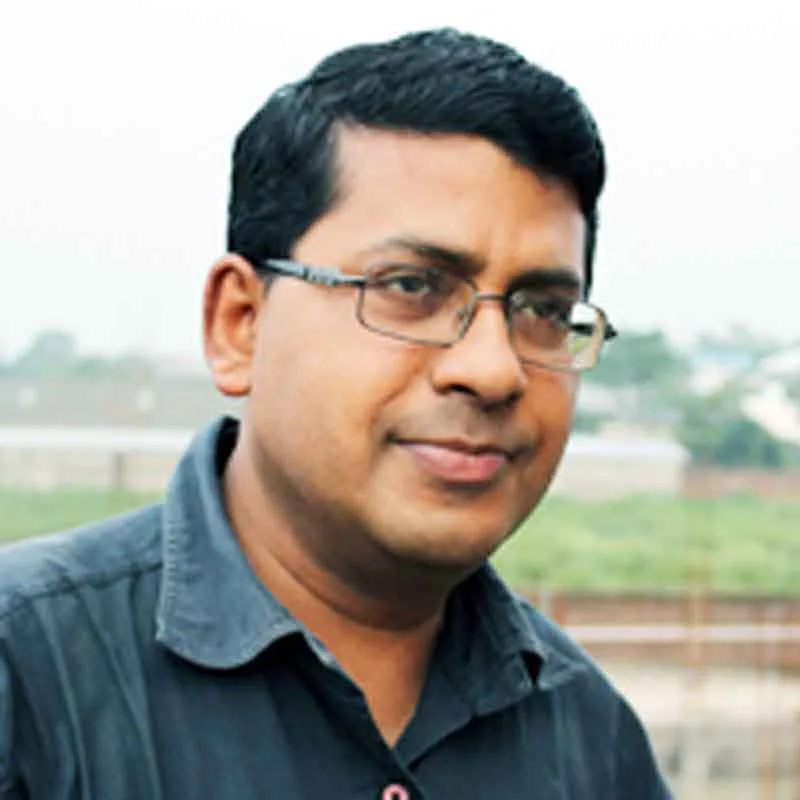Vajpayee’s Hindutva, Hindutva’s Vajpayee

GUEST COLUMN
 Romit Bagchi
Romit Bagchi
There was a time when I used to be baffled by the paradoxical persona of Atal Bihari Vajpayee, finding myself lost all too often in the labyrinth of the leader frequently flitting from position to position: revealing a dilemma between an unbigoted politician aspiring for a statesman-like breadth of vision and a swayamsevak committed to the Sangh Parivar’s Hindutva-imbued worldview. A question naturally kept nagging me: was he really the archetypal liberal politician he projected himself to be or someone who ‘put his finger up in the air to find out which way the wind was blowing’, adept in the art of bending with the wind, with no unbendable centre of ideological conviction within him? I no longer get puzzled by the equivocacy he would revel in, something which puzzled all, his critics and his acolytes alike.
I will get into it later, but now let us see how he elegantly bobbed from position to position on issues of monumental importance for the old, yet new nation that keeps groping for its identity amidst the raging ideological battle between the territorial nationalism that marks the defining idea of India for those toeing the Nehruvian line of uncompromising secularism and the cultural nationalism that, though Hindu in spirit and traditions, is wide enough to include in it those who are following non-Hindu religions.
Abandoning the wishy-washy Gandhian socialism and adopting the unapologetic Hindutva agenda, when the Bharatiya Janata Party embarked on its momentous journey through the frenzied Ram Mandir movement stewarded by Lal Krishna Advani, Vajpayee was a lonely, sad man marginalised in the saffron circles. Advani, in his memoirs, My Country, My Life, says: “It was the time when Atalji chose to remain relatively inactive.” Advani later wrote in a Hindi magazine that Vajpayee had been opposed to BJP’s direct involvement with the Ram Mandir movement but had fallen in line with the majority view. In tune with his public image as one who espoused a moderate line against the tough view of his hawkish colleagues, Vajpayee described the demolition of the Babri Masjid as the darkest hour of post-independence history of India.
Now, let us see what Vajpayee wrote in an article published in the RSS mouthpiece Panchjanya titled ‘Sangh is My Soul’ three years after the demolition (1995). Interestingly, after it was published, Vajpayee denied having written it. Yet the people believed and still believe that this piece was written by him. He wrote there candidly that though the Hindus did pull down the structure in Ayodhya it was a reaction to the Muslim vote bank politics. Lauding the RSS, he wrote that it had regenerated the Hindu society. “Earlier, the Hindus used to bend before invasion but things have changed since. This new-found Hindu self-assertion must be welcomed and the Hindu society must go for self-expansion to come out of its existential crisis,” he went on.
There is even more. “The RSS has a two-fold task before it. One is to organise the Hindus by building a strong Hindu society, well-knit, free from the schism of caste and other artificial differences…The other task is to assimilate the non-Hindus like Muslims and Christians in the mainstream. They can follow the faith of their own conviction. We have hundreds of ways of worshipping God. They can go where they want. But this country must be looked upon as the Motherland for them. However, the Islamic division of the world into ‘Darul Harab’ and ‘Darul Islam’ comes in the way. Islam has yet to learn the art of existing and flourishing in a country where Muslims are a minority. They cannot convert the whole of India to Islam. After all, they have to live here. So they have to recognise this fact.”
We know Vajpayee as a leader who spoke in conciliatory, inclusive language vis- a- vis the Indian Muslims, preaching the virtue of moderation and tolerance while stressing the all-embracing, secular character of the Indian State and nation. But his real attitude towards the Muslims in India is enshrined in the same write-up. Taking a critical view of the Congress’ stance of appeasement, he wrote that the party had failed to comprehend the real nature of the Muslim problem. Spelling out three ways of dealing with the Muslim problem-‘Tiraskar’ (rejection), ‘Puraskar’ (appeasement) and ‘Parishkar’ (cleansing) – he wrote that while the Congress had been bribing them to reap electoral dividends under their vote bank politics (puraskar), his party, on the other hand, had been trying to change them by cleansing them and providing them the right samskaras on way to assimilate them in the nation’s cultural mainstream (parishkar). “Mecca can continue to be holy for the Muslims but India should be holier than the holy for them. You can go to a mosque and offer namaz. But if you have to choose between Mecca or Islam and India, you must choose India. All the Muslims should have this feeling: we will live and die only for this country,” he wrote.
Now, there is hardly any room for doubting his strong commitment to Hindutva that the RSS champions as its core ideology. Yet, quite strangely, despite knowing everything about him, some people still love to box him as a liberal who found himself in an illiberal party, to call him as one who revelled in becoming everything to everybody. There are even some who thought him as an iconoclast with incorrigible irreverence for hide-bound ideologies, be it Hindutva or Nehruvian liberalism. The question is: why is he still being lovingly portrayed by some as one who lacked an anchoring and embedding-an iconoclast or a pragmatic chameleon changing colours in accordance with the demands of the changing times?
But the truth is that he did have an anchoring and embedding and he held fast to his ideological moorings through the vicissitudes of his public life. And yet he could not be straitjacketed in enslaving ideological grooves. This is the enigma that Vajpayee personifies that remains unravelled years after his retirement from public life and death.
My view of him is, however, simple. What I think of him is that he knew the power of harmony. He exemplified the power to convert disharmonies into harmonies. He demonstrated in his public life how the apparent contradictions of ideologies can be reconciled in an all-inclusive harmony. Sri Aurobindo writes in The Life Divine that all problems of life are, in essence, problems of harmony. This call to harmonise the disharmonies in life comes from the deepest soul of eternal India. Vajpayee heard this call and so he lived his public life like the mudfish: he lived in mud and yet his skin remained unsullied by mud.





